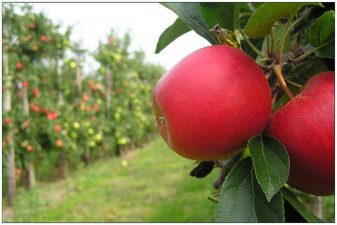What can Islam do for the environment? That’s a question I have been asking myself for some years now and, in all honestly, I am nowhere near answering it fully. I have definitely enjoyed looking into the green ethics of Islam in a bid to help Muslims worldwide take up the environmentally-friendly path, but I still have lots of questions.
Like how can we get Muslims to embrace the greener side of Islam?
How do we translate belief into action? How do green Muslims, who are coming at the climate change issue from a different perspective, link up with more mainstream and non-faith green organisations?
Embracing geo-engineering as ‘Plan B’ is not only dangerous as the outcomes of planetary-scale experiments are highly uncertain; it is undemocratic, irresponsible and ignores the fact that we have a perfectly good ‘Plan A’ – to cut our emissions.
We just need better ways of convincing people to do that. One area that is commonly overlooked when exploring ways to encourage greater climate awareness and action is faith and religion. Islam, in particularly, which is perceived as the faith of oil-rich sheikhs is sidelined with sparse academic research highlighting the insights Islam has to offer an environmentally vulnerable planet.
The primary source of all Islamic thought and practice, the Holy Qur’an, is full of exhalation of nature, its beauty and the need to protect it. Nature is portrayed as God’s glory, a gift of sustenance and humanity is divinely ordained responsibilities to care for the natural world and keep the harmony and balance placed within it.[1]
In the Qur’an there are “ample instructions as well as warnings to the faithful not to abuse their power in dealing with the environment. Distortion of the natural order and ill-treatment of God’s creatures, whatever they are, are considered as sins that lead to punishment.”[2] Wastefulness is discouraged and excessive consumption or greed is actively prohibited. Indeed, the Prophet Muhammed warned his followers to not waste precious resources such as water and encouraged them to protect land and improve its fertility.
With this in mind, it is not hard to make the link between Islamic ethics and the need to curb our excessive use of non-renewable resources such as fossil fuels which are poisoning the air and land. As such, Islam has “the capability of helping to solve one of the greatest problems of our time, namely that of ‘the environment’.
Islam need not be a hindrance, but could be a great help, in educating the faithful about good environmental conduct.”[3] Cairo, the Islamic capital with one thousand minarets, is one of the most polluted cities in the world and Bangladesh and the Maldives – which are both Muslim nations – will be the worst affected countries when climate change hits due to flooding and droughts. [4] Indeed, environmental problems plague many Muslims countries whether it be deforestation in Indonesia, desertification and over-development in the Middle East or drought in North Africa.
These nations and many others have everything to gain by tackling climate change and environmental pollution by embracing the green ethics of Islam. Today, the Muslim faith commands influence (to varying degrees) of 18% of the world’s population and covers a very large area where some of the greatest environmental problems exist. [5] As such, highlighting the green tenants of the Islamic faith is hugely beneficial to tackling climate change and may become increasing useful with the predicted doubling of the Muslim population by 2030 to 26.4%.[6]
If Muslims across the world garner greater awareness of their Islamic duties to the environment, it also perceivable that they would be able to pressure their governments into making the right ‘green’ decisions when it comes to water, food, recycling and energy use. It would also mean that rich Gulf Muslim nations such as Saudi Arabia, Kuwait and Bahrain wouldn’t be as obstructive at important climate summits if their populations could rally for the environment based on Islamic tenants. [7]
[1] Murad M. Islamic Environmental Stewardship: Nature and Science in the Light of Islamic Philosophy in Union Seminary Quarterly Review, (2011) Vol. 63: pg147-8
[2] Kula, E. (March 2001) Islam and environmental conservation. Environmental Conservation: Vol. 28 (Issue 1), p4.
[3] Kula, E. (March 2001) Islam and environmental conservation. Environmental Conservation: Vol. 28 (Issue 1), p7.
[4] N. Ammar, Islam and Deep Ecology, in D. Landis and R. Gottlieb, Eds., Deep Ecology and World Religions: New Essays on Sacred Grounds (State University of New York Press, 2001), p193.
[5] Ibid, p2.
[6] Jones, H. (January 27 2011) 2.2 Billion: World’s Muslim Population Doubles. TIME. http://newsfeed.time.com/2011/01/27/2-2-billion-worlds-muslim-population-doubles/
[7] Sanchez, R. (November 11 2011) US ‘blocking’ climate change fund ahead of Durban conference. The Telegraph. http://www.telegraph.co.uk/earth/environment/climatechange/8914511/US-blocking-climate-change-fund-ahead-of-Durban-conference.html
Image of sitting bedouin and donkey from Shutterstock.com
For more on Islam and climate change:
Green Iftar Guide – Breaking the Ramadan Fast Sustainably
How Islam Could Help Fight Water Scarcity
Islam’s Environmentally Friendly Architecture – Where Did It Go?




Islam explodes its population, attacks other religionists and treats women as slaves, but loves Nature??? You’re kidding, right?
Having large families is the first thing we can do for managing the environment.
But besides that, living like the prophet did when he lived like a bedouin also helps educate the people.
Here’s a video on a little bit of islamic environmental living:
http://www.youtube.com/watch?v=V2iX46g_hrE&list=PLAB52E6EDB628A15A&index=6&feature=plpp_video
Here’s another one about basic conservation of resources:
http://www.youtube.com/watch?v=8At_VxJPcqo
Another one is using bicarbonate soda and sea salt as a form of body shampoo/scrub/wash to lower chemicals in the water supply.
Also let me mention that those who train to live without much water in the desert, they use tayummum for cleaning themselves.
The next is the sunnah of the prophet when it comes to not letting the wudu water go back in the river. So rather than us flushing poo and organic matter down the toilet, we’d conserve it and store it in local tanks and get methane gas and fertilizer.
These four or five points would have a significant impact to easing the strain of pollution upon a local environment as well as resources. And with more people using locally created gas supply, this would ease gas acquired from fracking.
Encourage to reduce the wastage after Iftar.
We should not have large families too.
Earth is running out of resouces.
Peacefully avoid overpopulation and ecocide by having fewer children.
Mosques could form a great role model for worshipers if they were designed to be more Eco-friendly.